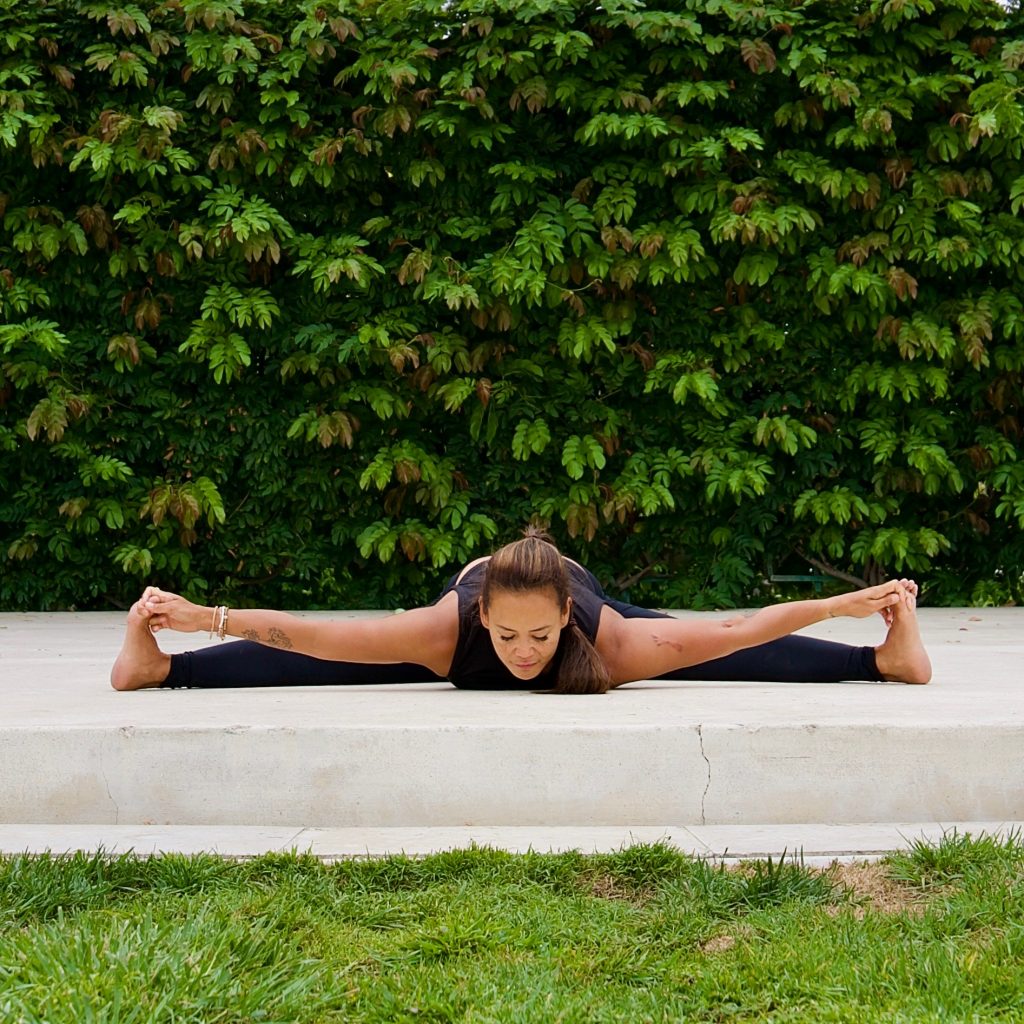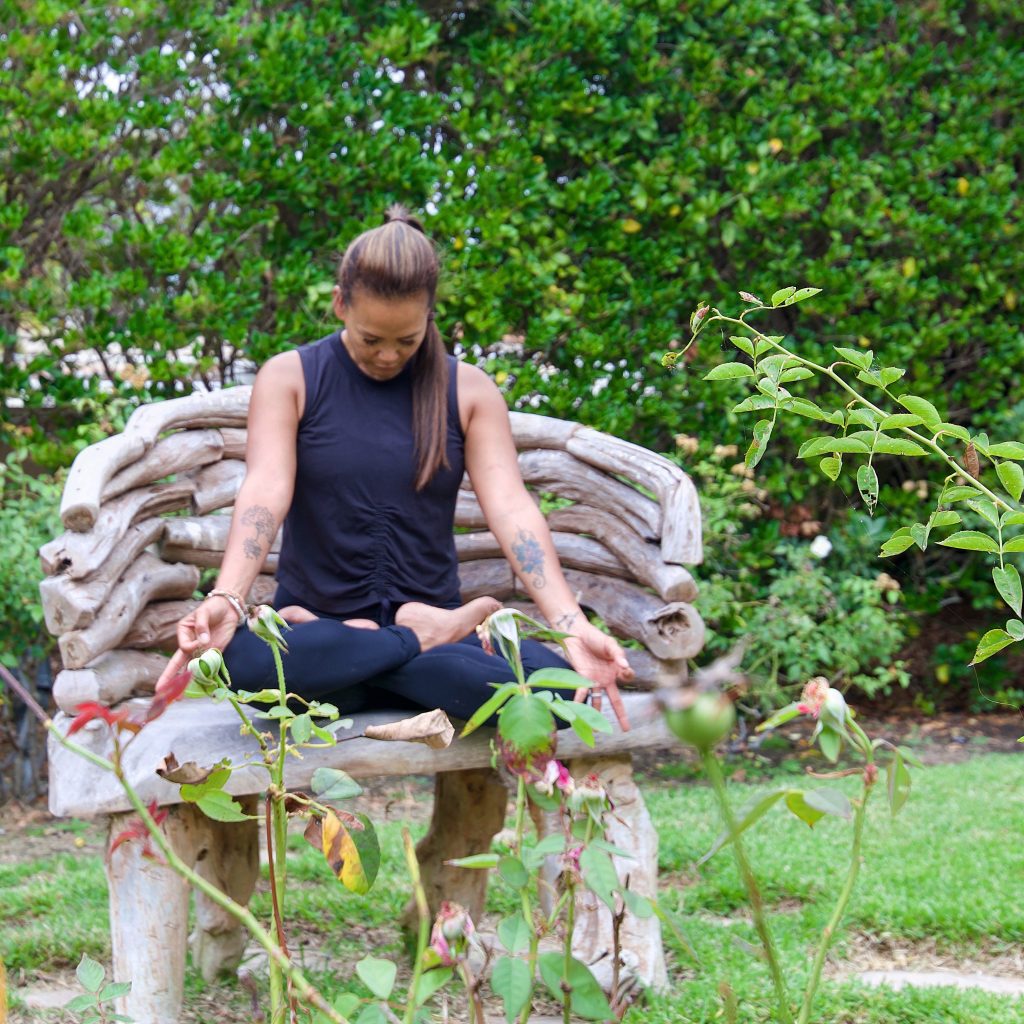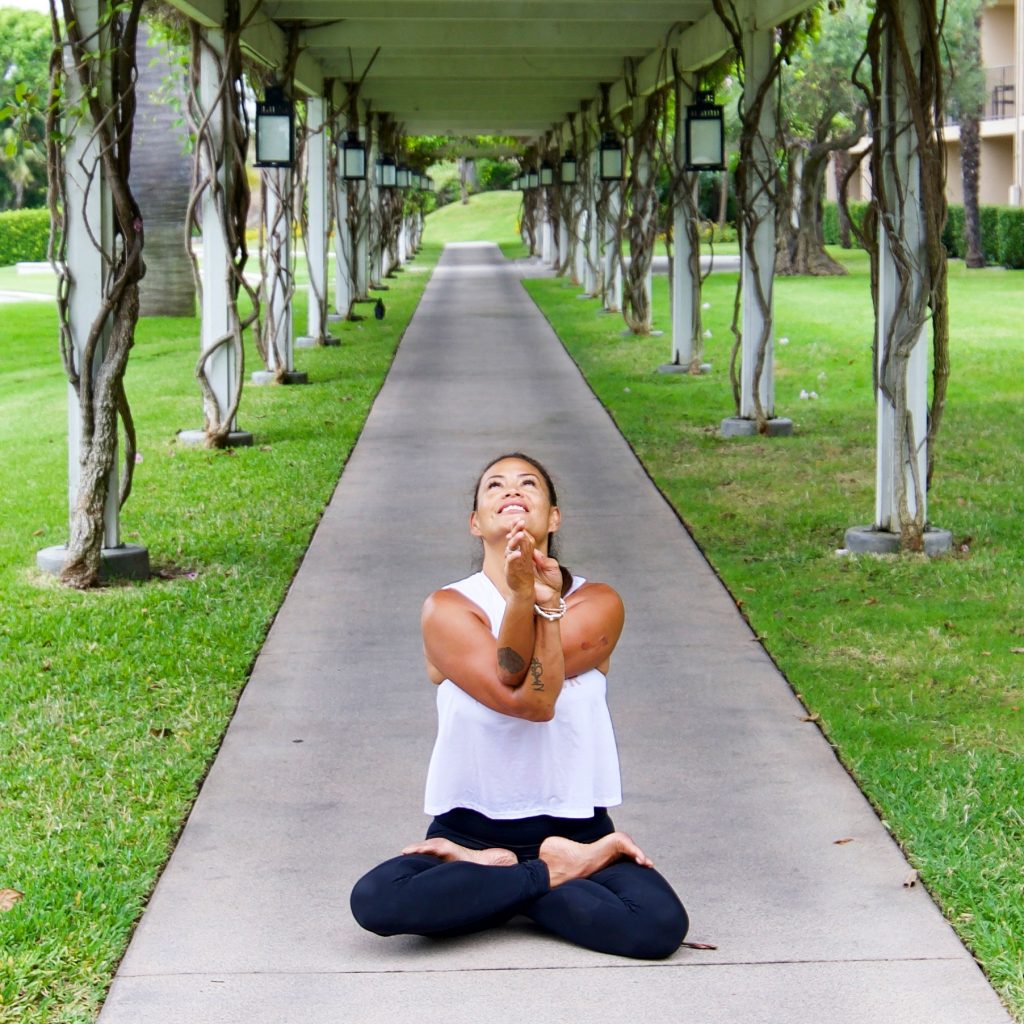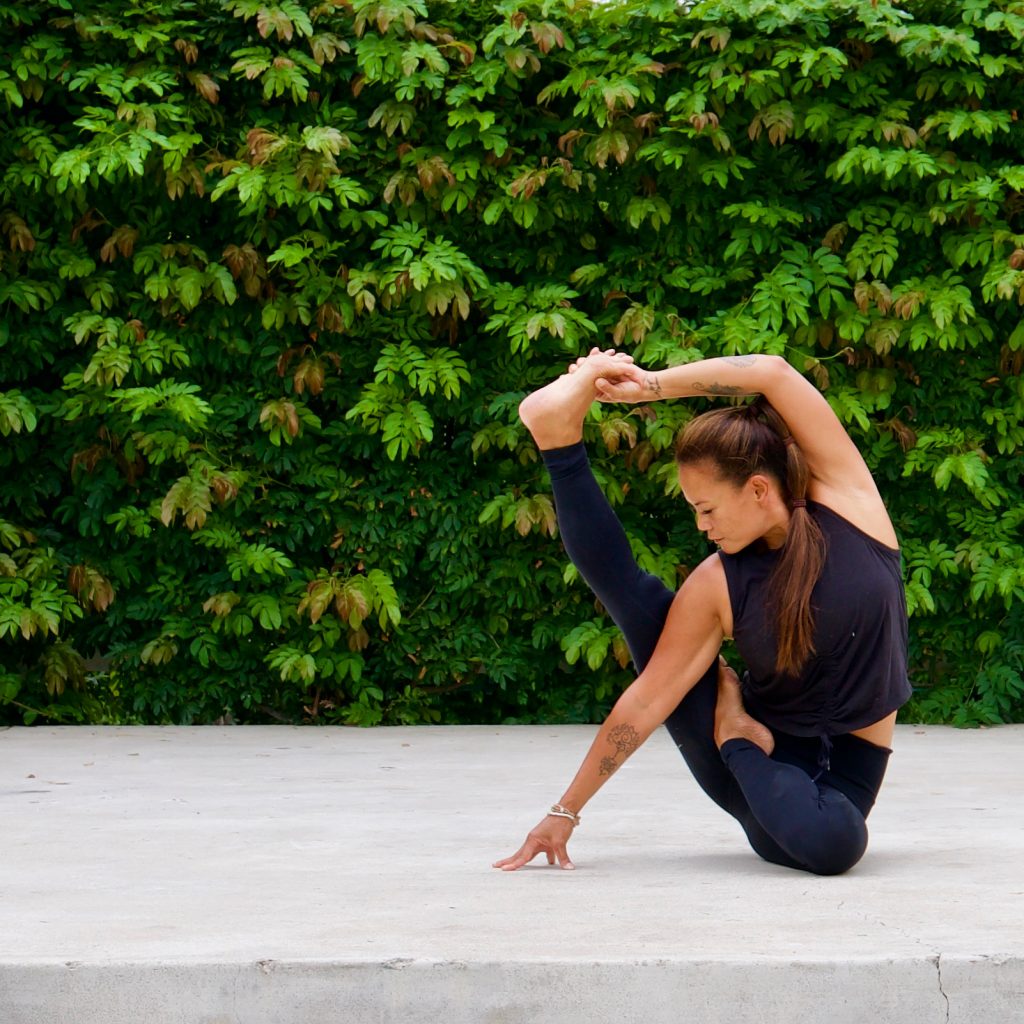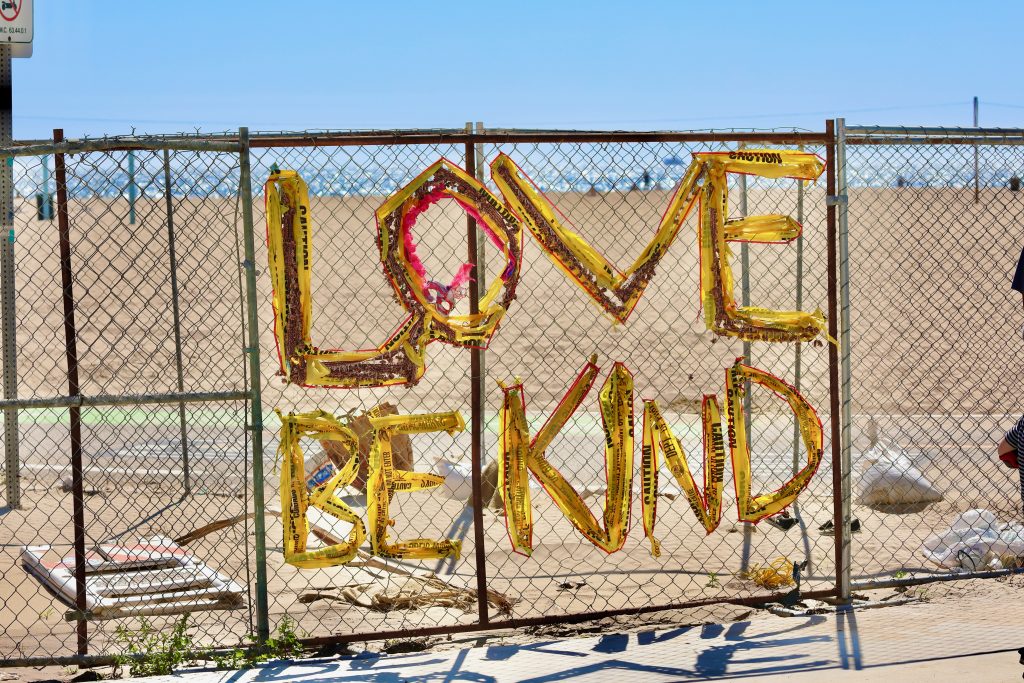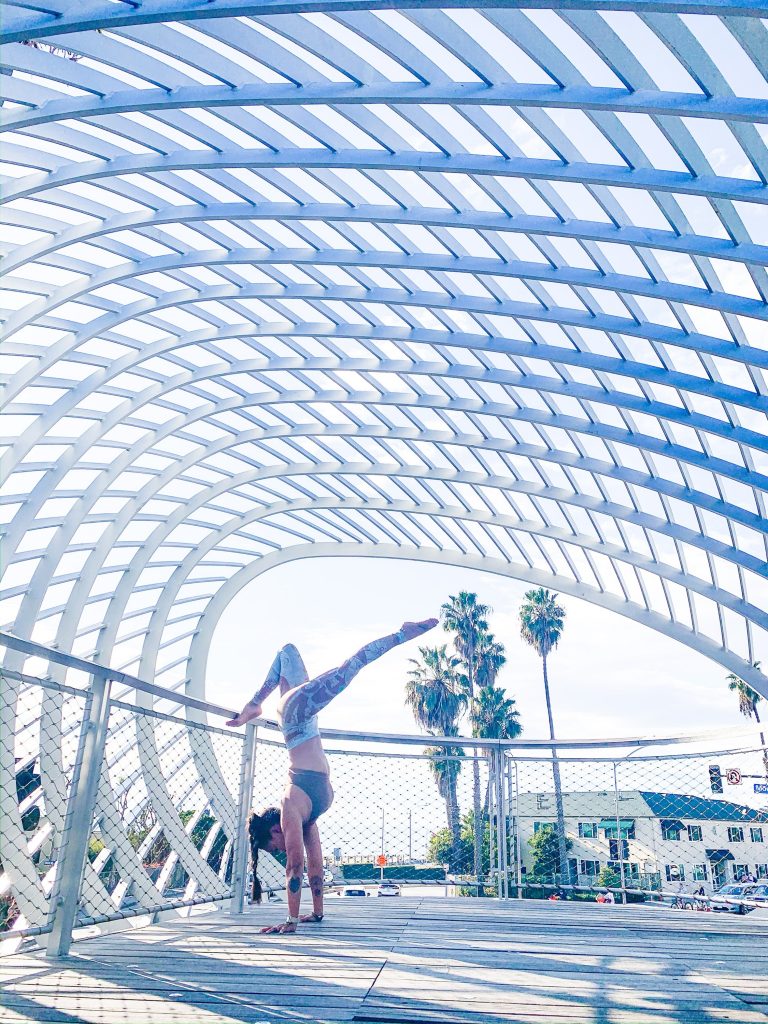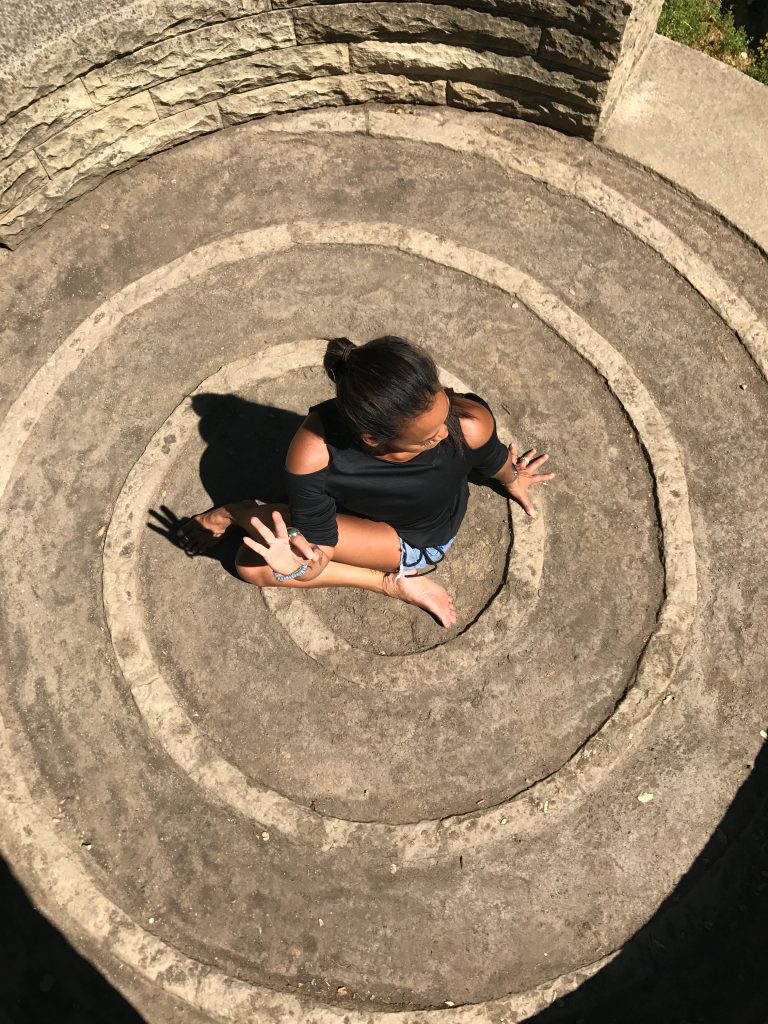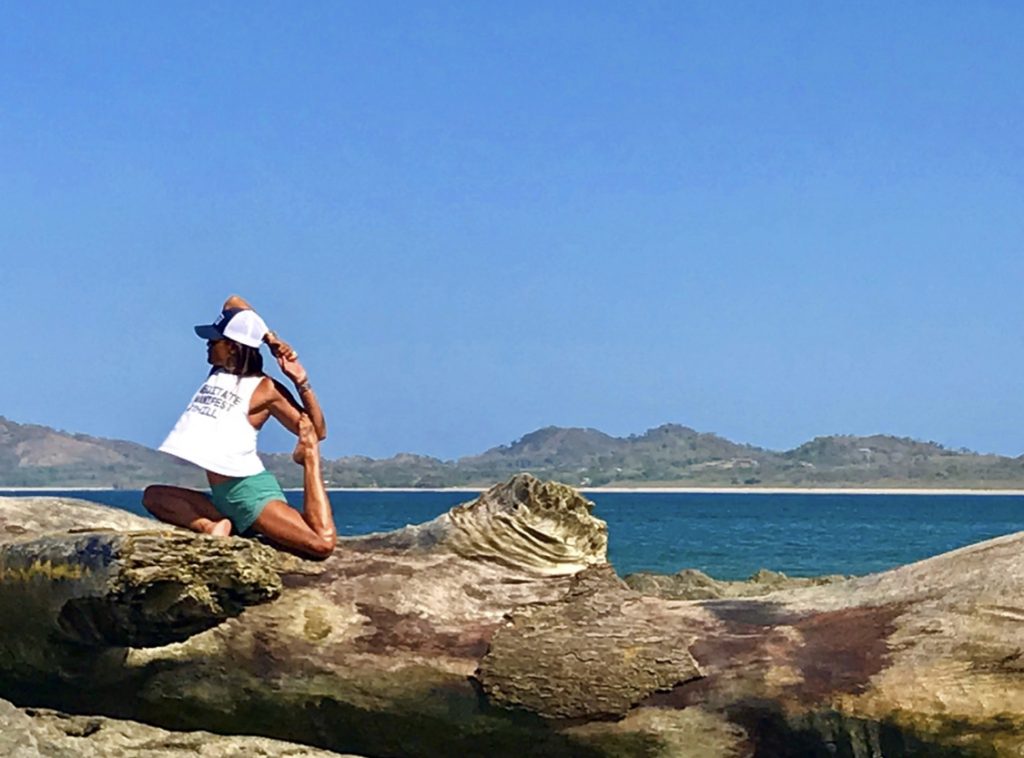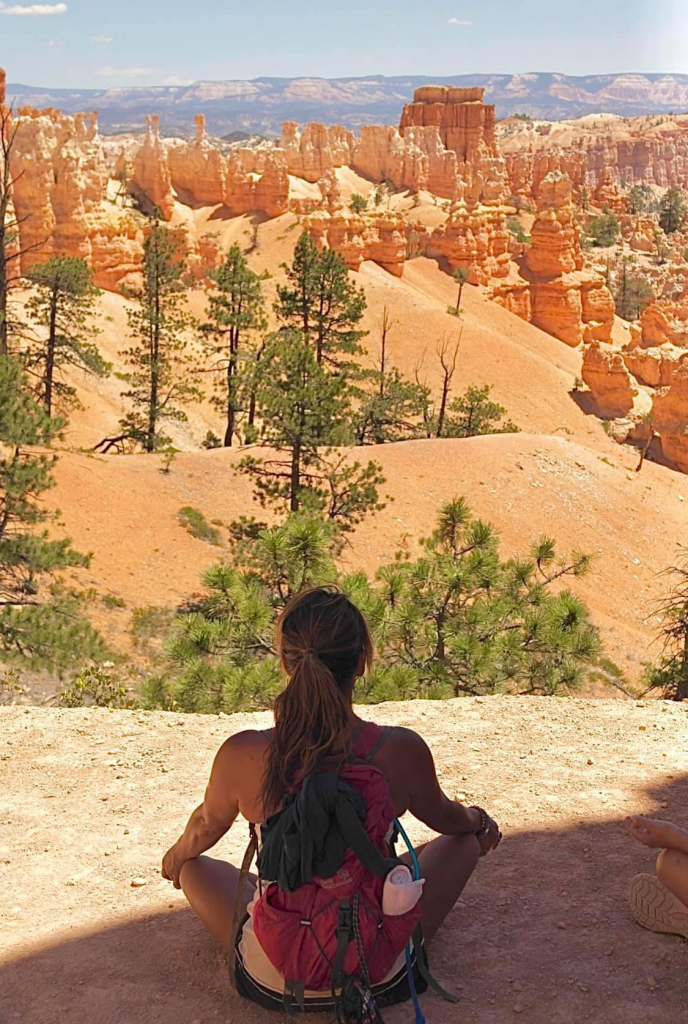When the world started closing down around us, it left us with emotions, experiences and futures we were completely unfamiliar with. Many people decided to take a brave step: amidst all the uncertainty, many of us chose to #focus in on ourselves and look at ourselves honestly, taking the time to #reflect, regroup and restructure our self-understanding and our journeys.
The Sanskrit term #Svadyaya comes from ‘sva’, own, self, soul; and ‘dhyaya’ derived from dhyai, meaning contemplate, recollect. This concept of self-study encompasses both the #Self—the ego, and the Self—our divine truth. By observing and listening to both, we can learn about the things we do that harm us, and the things we do that bring us closer to the divine.
As Sutra 11.44 tell us: “Study thy Self, discover the divine.”
This process is in no way an easy one. Learning from oneself requires #attention and #mindfulness on a whole new level, awareness and observation of our actions and thoughts, and the willingness to question them.
It’s this act of challenging ourselves that can bring to light our hidden shadows, those parts of ourselves we push to the side, but that nonetheless play a central role in our interactions with the world.
Questioning ourselves can be intimidating, not to say terrifying. But it’s when we start understanding the answers that a whole new question arises:
“What now?
I’ve brought some of my darkness into the light. I can see more of myself now. What do I do with this new understanding?”
Our gut reaction might be to panic and try and shove it back down. Our more mindful response might be to try and work on accepting it without judgement. Our wisest Self-reaction should be to give ourselves the tools to heal and channel it.
With self-love, self-compassion, and self-awareness, we can see where, how and why a Shadow element was born. We can start re-interpreting the triggers and re-calibrating our reactions. We can observe ourselves slipping back into it and take action to channel our emotions else-where.
Self-knowledge is our power to self-improve.
According to psychologist Carl Jung, through self-reflection we’re faced with our “shadow”—aspects your psyche that you prefer not to look at and keep them hidden in the darkness. However, if you do some “shadow work” you shine a light on the dark side of yourself to face your negative tendencies or #samskaras
Working through your samskaras (those consistent negative behaviors/patterns) via deep inquiry can transform your relationship with yourself and others. Learn to redirect your shadow self through a consistent #yoga practice and #meditation.
Even try using mantras in your meditation, like “Sa Ta Na Ma”, the mantra for #change and to break addictions or habits.
Sa – Infinity
Ta – Life
Na – Death
Ma – Rebirth
Sit in an upright position. Close your eyes and focus on your third eye center, which stimulates the pineal-pituitary centers in the brain.
On “Sa” touch your index finger with the thumb with gentle pressure, Jnana Mudra (knowledge, release from limitations)
On “Ta” touch your middle finger with the thumb with gentle pressure, Shuni Mudra (patience, wisdom)
On “Na” touch your ring finger with the thumb with gentle pressure, Surya Mudra (vitality)
On “Ma” touch your pinky finger with the thumb with gentle pressure, Buddhi Mudra (aids clear communication)
Try this for 5-minutes before you settle into deeper meditation.
Visit “JennyGB Yoga” on YouTube for some guided meditations.
Uncertainty is difficult to cope with at the best of time. This year has brought us #uncertainty on a scale that many of us haven’t experienced before. From wondering what our jobs will look like in a month—if we’re lucky enough to still have one; to not knowing when we’ll be able to see, let alone hold, our family and friends again. It’s challenging to maintain a structured, future-orientated existence when the future feels like it’s changing under our very feet.
Throughout this year, plans ranging from family reunions, dinners and playdates, to holidays and birthdays, moving house and work trips have been put on hold indefinitely or cancelled. The world looks and feels very different from last year, but also from last month, and no one really knows what next month will look like, let alone next year. We’re not equipped to handle this level of uncertainty, and not knowing how long it’s going to last can make it difficult to maintain our #motivation and #optimism.
Some of us tentatively make plans, at least half-convinced that these plans will never see the light of day. To make plans in the current climate means to knowingly risk financial and emotional disappointment. Important life #decisions are put on hold because we have no idea what life will bring us next. We’re all walking on eggshells just trying our best to steer a steady course towards our goals.
What makes this all the more frustrating is that we lack absolutely any control over the circumstances.
From the global health situation to the political situation, all we can do is try to navigate these turbulent waters without compromising our sense of #Self, our grounding #values and our #well-being. Yes, this means adapting many things we used to take for granted, but the important thing is that we do #adapt! Finding ways to nurture our flexibility of #mind and #spirit, our #tolerance for #change, our ability to see blessings and lessons—this is the key to surviving AND thriving in a climate of total uncertainty.
This is life now: you get to LIVE it.
Make plans, make decisions, but don’t get attached to them; use new criteria and guidelines to make choices that are comfortable for you, but still make those choices. Don’t forget to LIVE.
To know clearly. To go through life with clarity and wisdom.
It’s something we all wish for, because when we can’t identify the truth of a situation, we often get hurt or disappointed.
Patanjali’s Yoga Sutras differentiate beautifully between these two states of being: right #knowledge is built on perceiving the truth of a situation (1.7), and false knowledge is created by our misperceptions (1.8). This false knowledge is what leads to pain and strife, conflict and misunderstanding, intolerance and hatred.
How can we achieve clarity? How can we find right knowledge? The #Sutras tell us that “the source of right knowledge is built on clear sense perception, logic and verbal communication.” These are not elements that always come naturally to us. Our #perceptions and logic are often clouded by past experiences, emotional reactions and expectations, while #authentic and #honest #communication can seem challenging and unpleasant.
Yet if we want to avoid the pitfalls of false knowledge, it’s vital that we find the ability to see each situation, person, or event as new. To examine it based solely on its own factors without interference from past #patterns and #expectations. When we can see it clearly for what it is, rather than what we assume or expect it to be, we can use logic to come closer to right knowledge. Precise communication then empowers us to ask for any clarification or information we might still need.
To perceive right knowledge, rather than our projection of the truth, we must, therefore, be willing to communicate bravely. We can do this by being honest and #authentic about our motivations and asking the questions that we need to ask in order to better understand a situation. In this way, #communication enables us to learn more about ourselves, the exact circumstances, and our interactions with the world around us.
It’s our best tool for finding the #truth.
Clear communication can help us see beyond the filter of misperception, steering us away from hurt and pain so that we can move forward in #positivity and #confidence.
BALANCING OUR EMOTIONAL WELL-BEING
It can sometimes seem like the #balance of our emotional #well-being hangs on a knife’s-edge, and all it takes is a nudge to make us feel like we need to start over. We’re scared of stumbling back into negative thought #patterns and feeling spirals, so it’s tempting to protect ourselves from these ‘nudges’ by limiting our exposure to stressors.
In times of crisis and social upheaval, though, these ‘nudges’ often come in the form of news, awareness and educating oneself about what’s going on around us. So where is that fine line? The balance between ‘the news just depresses me’ and ‘it’s important to stay aware and educated so we can address the issues of our time’?
That fine line starts with our own definition of ‘balance.’ Often we mistake ‘balance’ for ‘feeling full of love and gratitude all the time.’ But one of the most transcendental aspects of the human experience is those emotions that signal to us that something isn’t right: sadness, anger, fear.
Without these powerful emotions, inner work and #self-improvement would be impossible—they’re the catalysts that wake us up and inspire #change.
‘Balance’ is being in the flow of emotions, experiencing them fully and letting them go. It’s being able to return to love and #gratitude after experiencing anger or sadness. Most importantly, it’s trusting your ability to do so. Only when you have #faith in impermanence and your ability to re-center yourself will you be empowered to feel all of your transient human emotions fully and freely.
So educate yourself and read the news, but don’t flood yourself with stressful stimuli. Feel the anger, fear and hurt fully—they’re justified—but don’t wallow in them. Be #compassionate with yourself when you’re feeling low, and love yourself back to the #Light. Anger may inspire #change, but #Love will cement it.
There’s a game that people seem to enjoy playing. It’s a game that means they don’t have to face reality, adapt to situations, or take responsibility for their own lives. It’s a game that allows people to cling to their image of themselves and of what ‘normal’ should be. It’s the Blame Game.
The Blame Game becomes a bit of a national sport in times of crisis. People always find someone, other than themselves, who must be actively responsible for a situation. This way, they can sit in righteous anger and refuse to see a crisis from different perspectives. They can remain blind to the lessons to be learned. They can ignore their own role in creating or aggravating the issue.
Because it’s clearly someone else’s fault.🤦🏽♀️
The Blame Game is the easy, reassuring road. In times of crisis, it’s so simple to shift our gaze outwards and blame others, usually completely irrationally. It means we don’t have to examine ourselves and our priorities with a critical eye.
At the moment, ‘Asians’ are being blamed for a global pandemic as witnessed when Michael Lofthouse, former CEO of Split8, was seen on camera barraging an Asian family with racist rants. Jason Wood, former CEO of Actionable Insights, recently resigned after he, too, was caught on video hurling several racially charged, anti-Middle Eastern comments and slurs. All because he refused to wear a mask indoors. And, of course, we all know what our black brothers and sisters consistently deal with.
#Love, #Kindness and #Compassion are the difficult paths, the rewarding paths, the healing paths. When our sense of ‘normal’ is threatened, this is the path that refuses to succumb to fear and anger. It’s the path that sees the suffering of others and wants to make it better. It’s the path that sees that we’re all in this together and we’re stronger as One. It’s the path that expands our #perspective so that we can act for the greater good.
In times of crisis, Love and #Kindness are what will help us create a better, more #united, more diverse tomorrow. As a nation, I wish we could stop pointing fingers and start opening our hearts.
Resilience is having the emotional tools to receive all the depth and range of transient human experiences, without losing touch with our perspectives or core grounding values. These tools, which include #hope, #mindfulness, #self-awareness, #self-compassion, #faith, #determination, #willpower, and #far-sightedness, to name just a few, are muscles that can be trained by conscious choices and decisions.
Every day, we can actively choose to become more resilient in the face of challenges, thereby empowering ourselves to be in flow with what the world has to offer.
#Resilience works on a personal level, helping us as individuals to stay rooted and #grounded through the storms, but it also functions on a societal level.
Societies can be easily threatened, destabilized or torn apart, or they can be resilient in the face of physical and social challenges. Of course, much of societal resilience depends on access to food, water, education and employment, but it also relies heavily on its parts.
Resilient societies are built by people who are grounded enough to take change and difficulty in their stride, without turning against each other.
Resilient societies are built by people who widen their perspectives to take into account the experiences of others, so that they play positive roles in them.
Resilient societies are built by people who can look honestly at themselves, and work to make themselves better.
Resilient societies are built by resilient people. And resilient people are built with compassion and hope.
So let us, as a society, flex the muscles of compassion and hope as we navigate the lessons that 2020 is offering us.
A growth mindset is the most valuable tool we can mobilize, both as individuals and as a society. It’s what enables honest #reflection, authentic dialogue, genuine #transformation and sustainable change. A growth mindset is our ability to transform ourselves and our communities into representations of our core values. It’s our greatest superpower.
That’s not to say that it’s easy, though. To grow, we must be able to honestly look back at where we’ve come from, and we must be able to fearlessly and compassionately name our ugly bits, our mistakes, our faults and flaws. This way, they give us the power to transform, rather than us giving them the power to hold us back.
Even more terrifying, we must be open to how others perceive our behaviors, how others are impacted by us, and what our peers see in us that we might be blind to. Listening with an open heart; accepting others and ourselves; giving ourself the permission to be ‘not-perfect’ so that we create the space to grow into who we want to become: this is the basis of the authentic dialogue between us and the world that is going to help us transform.
The key, as always, likes in the #Ego. The Ego has no compassion, it only condemns. So if it were to truly listen, it would have to turn its condemnation onto itself, and that would be unacceptable. To prevent this, it gets defensive and angry, fogging up the mirror so we can preserve the flattering view of ourselves.
To let go of the Ego is to let go of condemnation. It is to embrace #compassion, for others and for ourselves. And once we have compassion for ourself, for the influences that made us, for our flaws, mistakes and ugly bits, then we can truly look at them, name them, and transform them.
It’s natural for our minds to cling to the known, to the familiar, to those things that we can handle, whether they’re good for us or not. It feeds our #ego when we see around us a world that reflects what we know. To see a world that reflects what we don’t know – now that would be terrifying, and exactly what we need in order to grow.
Distancing ourselves from our ego, it becomes easier to see the patterns, or #samskaras, that we hold on to which work against our best interests. It also becomes easier to welcome the changes, the ebbs and flows which are a natural element of life.
“Use all your power to free the senses from attachment and aversion alike, and live in the full wisdom of the Self,” the Bhagavad Gita 2.68 says.
Yoganand Michael Carroll from the Kripalu Center says,“The spiritual practice propagated by the Bhagavad Gita is to shift identity from ego to #purusha (self), from the field of action to the observer of the field,” Yoganand Michael Carroll from the Kripalu Center.”
By dismantling the ego, we leave more room for our #Self. The Self understands and welcomes the #impermanence of things, and therefore has no expectation or attachment to specific outcomes and situations. The Self knows, on a level of deep consciousness, that all things change, and therefore that any phase, whether good or bad, will flow into a different phase.
The faith in impermanence empowers us to feel all our transient human emotions deeply, to truly experience the vast range of feelings humans are capable of, whether that be grief, fear, love, joy, sadness, boredom, jealousy, excitement, anticipation…but without letting the emotions become our masters. When we know that all things change, we can fearlessly dive into the emotions, through the emotions, and observe them, experience them, witness them, accept them, and watch them float away.
Things around us are changing all the time. Some we have to fight harder for. The saying goes that you never step into the same river twice, but I believe it’s truer to say that you never step into the same day twice. It may seem obvious, but reminding ourselves that #change is not only a natural but an essential force of growth can make every day, every week, every month more meaningful and mindful.
Looking back on #History it’s clear to see that #Change doesn’t happen smoothly or all at once. It’s a painful, uncomfortable process full of friction, anger, momentum and hope. It’s a gradual, inconsistent process full of stops and starts, first waves and second waves, while the status quo gets renegotiated. There’s rarely a clear destination or blueprint.
Looking back on History, it’s also clear to see that Change is inevitable. Social and political structures are cyclically shaken to their core and re-built; nothing is allowed to stagnate or last forever.
In many ways, as a society, we have become so much more aware of the importance of Change. I feel that resistance to change is gradually losing its grip, giving way to more #acceptance and #release.
We want to Change.
We want to make History so that the next decade is different from the one that came before. We want to be part of the momentum rather than the friction.
Being part of the momentum of Change and Transformation requires a lot from us. It requires a willingness to un-learn and learn. It requires #consistency and #discipline in educating ourselves and applying our knowledge. It requires a deep, reflective practice where we look back to see how to move forward – and how not to.
We must build new #perspectives into habits and new habits into social norms. We must be willing to have the rug pulled from under our feet so that we can weave together a new rug, a better rug. One which brings us closer to a world where equality really means #equality and #diversity is celebrated in the rich tapestry of life.


